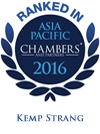The 3 C's – Lessons to be learned
As a result of the change to work health and safety laws (WHS) in 2011, persons conducting a business or undertaking (PCBU, which includes employers) must consult, cooperate and coordinate their activities with other PCBUs who have a WHS duty in relation to the same matter (Consultation Duty). Failure to do so can result in penalties of up to $100,000 for businesses.
Typically most WHS cases involve breaches of duties to ensure, so far as reasonably practicable, the health and safety of workers and other persons. Unfortunately what this can result in is a narrow focus on meeting this duty to the detriment of others.
Employers (and businesses generally) should be aware that health and safety in the workplace does not stop with dealing with internal issues and one's own workers. The Consultation Duty makes it clear that safety is an overall approach that requires some level of interaction with other businesses who may have an impact on the task/matters at hand. As a result, PCBUs should:
- Identify the other businesses that may have a role to play in a particular matter.
- Don't simply assume that these other businesses have adequately addressed their WHS issues.
- Liaise with businesses to either jointly identify risks to health and safety or view known risks that another business has already identified.
- Determine what the best method is for ongoing communication eg email, phone, face to face meetings.
- Labour hire business should be particularly vigilant to comply with Consultation Duty, as they are sending their workers into other workplaces.
Failure to consult lead to serious injuries
In a recent case in South Australia Boland v Trainee and Apprentice Placement Service Inc [2016] SAIRC 14 the South Australian Industrial Relations Court fined a not-for-profit organisation $12,000 for failing to comply with the Consultation Duty.
The business, Trainee and Apprentice Placement Service Inc. (TAPS), assigned apprentices to host employers. In January 2014 an apprentice was assigned with a roofer (Joseph Cameron Argent, t/as Shear Edge Roofing). During one task, the worker was handed 7.7 metres of guttering whilst only being 4.1 metres from power lines. The guttering came into contact with both a 240 volt and 11,000 volt power line, resulting in significant injuries to the worker.
Industrial Magistrate Michael Ardlie noted that there were no safety measures in place at the work site, even though it involved clearly high risk work within close proximity to power lines. Despite TAPS having knowledge of WHS issues, with three field officers who would attempt to visit the various worksites where apprentices were placed, TAPS could not simply rely on those other business at the work site to do the right thing as it relates to WHS without at least making sufficient enquiries.
TAPS, by not consulting, cooperating or coordinating with Shear Edge Roofing, was unaware as to whether appropriate training would be provided to TAPS' worker or even whether risk/hazard identification had been undertaken and any risks eliminated or minimised as far as reasonably practicable.
The value of the fine, being $12,000, was ordered because of an early guilty plea and the measures TAPS had put in place after the incident to reduce the risk of a recurrence of a failure to comply with the Consultation Duty.
The content of this article is intended to provide a general guide to the subject matter. Specialist advice should be sought about your specific circumstances.



